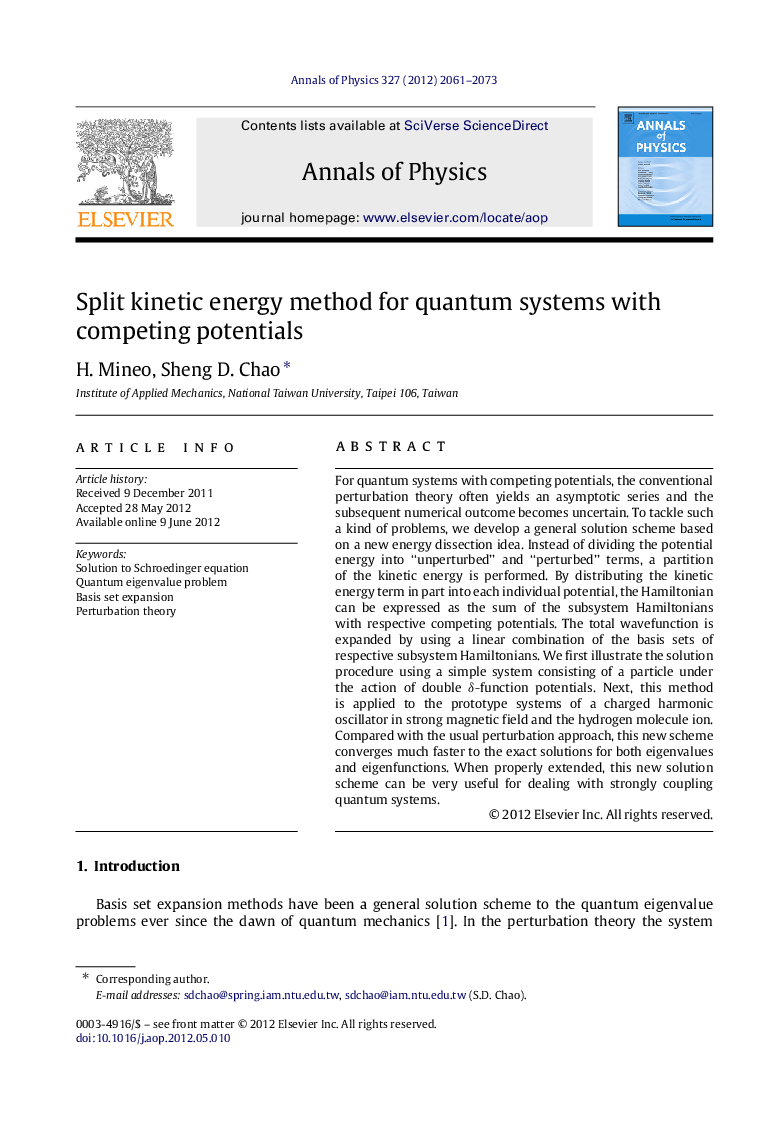| کد مقاله | کد نشریه | سال انتشار | مقاله انگلیسی | نسخه تمام متن |
|---|---|---|---|---|
| 1855109 | 1529887 | 2012 | 13 صفحه PDF | دانلود رایگان |

For quantum systems with competing potentials, the conventional perturbation theory often yields an asymptotic series and the subsequent numerical outcome becomes uncertain. To tackle such a kind of problems, we develop a general solution scheme based on a new energy dissection idea. Instead of dividing the potential energy into “unperturbed” and “perturbed” terms, a partition of the kinetic energy is performed. By distributing the kinetic energy term in part into each individual potential, the Hamiltonian can be expressed as the sum of the subsystem Hamiltonians with respective competing potentials. The total wavefunction is expanded by using a linear combination of the basis sets of respective subsystem Hamiltonians. We first illustrate the solution procedure using a simple system consisting of a particle under the action of double δδ-function potentials. Next, this method is applied to the prototype systems of a charged harmonic oscillator in strong magnetic field and the hydrogen molecule ion. Compared with the usual perturbation approach, this new scheme converges much faster to the exact solutions for both eigenvalues and eigenfunctions. When properly extended, this new solution scheme can be very useful for dealing with strongly coupling quantum systems.
► A new basis set expansion method is proposed.
► Split kinetic energy method is proposed to solve quantum eigenvalue problems.
► Significant improvement has been obtained in converging to exact results.
► Extension of such methods is promising and discussed.
Journal: Annals of Physics - Volume 327, Issue 9, September 2012, Pages 2061–2073